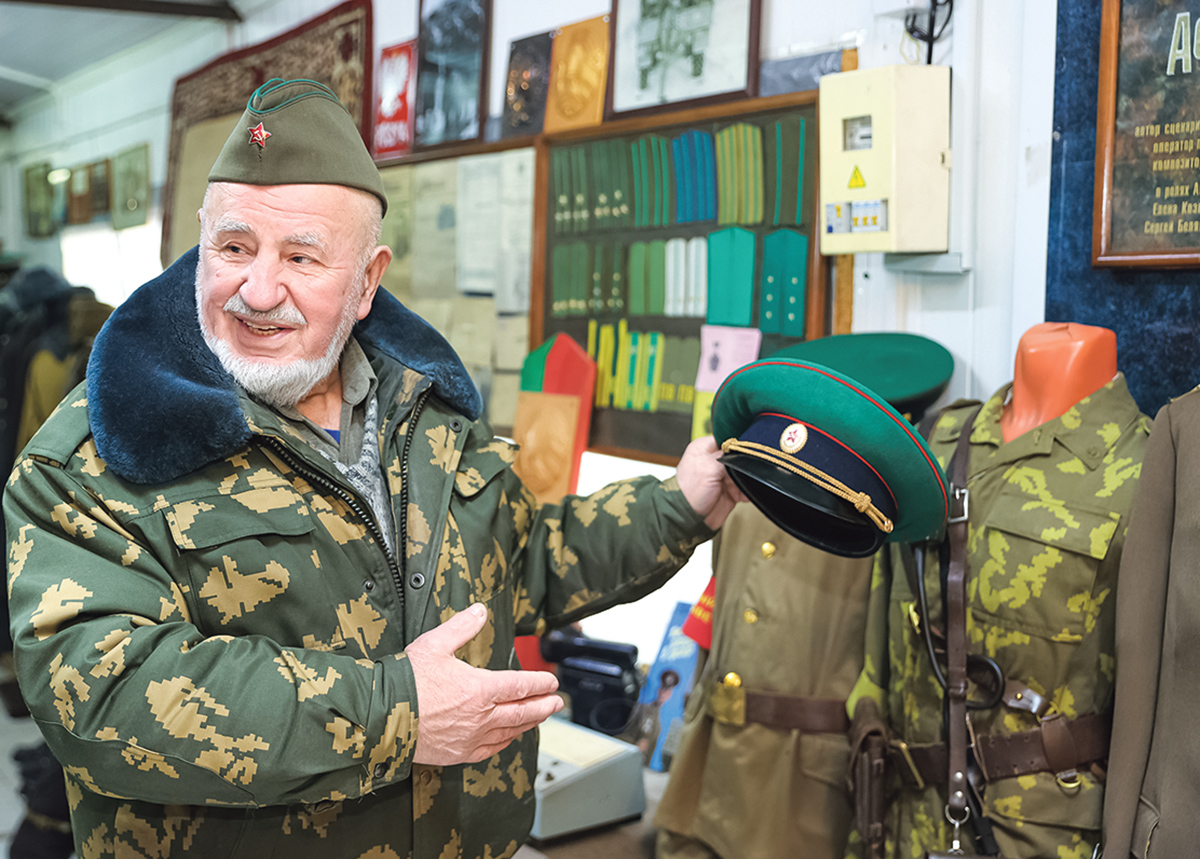Revived history
More than three thousand exhibits and not a single replica — the Tikunovs dynasty of border guards opened a unique military museum called Voentekh in Brest

A gas mask from the times of the World War I, complete sets of uniforms of Soviet border guards, a Japanese guntō sword… More than three thousand exhibits are presented in the private Brest museum Voentekh. The creators of the unique object were representatives of the border guard dynasty of the Tikunovs — father Nikolai and son Aleksei.

The cherished dream of showing the public a part of its collection and arousing interest in the history of the country began to come true a year and a half ago in an unusual place — the museum opened its doors to the Brest Laguna market. Since then, the number of exhibits has tripled, and many residents and guests of the Brest-on-the-Bug got acquainted with unique artefacts. However, interest in the history of military affairs appeared a very long time ago, recalls Nikolai Tikunov, “For many years of service in the border troops of the USSR, I also visited the outposts where museums were located. I often acted as a guide when various delegations arrived. And when I retired, I took up the formation of the collection. But the initiative was taken by my son Aleksei: during his service in Smorgon, a sapper shovel made in 1917 fell into his hands. He wanted to learn more about the equipment, uniforms, technology of that time. So we began to collect the necessary information and the first exhibits. Later, after the end of Aleksei’s military career, we continued to work with redoubled energy.”

A pavilion with an area of over 200 square metres in the Brest market was allocated to enthusiasts in 2021 thanks to the help of Natalia Ilnitskaya, General Director of the Laguna company.
Now there are more than three thousand exhibits: more than 115 dummies in full military uniforms, banknotes, chevrons, awards, first-aid kits, communications equipment, gas masks... Among the rarities, for example, is the Soviet album of the Japanese fortifications in Manchuria, the circulation of which is only one hundred copies. There was a place for more than a dozen motorcycles — both German DKW and Soviet Moscow, Minsk. The uniqueness of the museum is that only originals are presented here — no replicas and remakes.The collection is not limited to the period of two world wars — there are exhibits related to military conflicts in Vietnam, Afghanistan and Iraq. A separate place is occupied by the ‘border’ block with samples of uniforms, equipment and means of providing the border troops of the USSR and the Republic of Belarus.

Another feature is that it is not forbidden to touch the exhibits with your hands. If you want to try on a helmet, a steel helmet or a Red Army uniform, you are welcome. By the way, the exhibits are in demand among filmmakers. Tikunov Jr. acted as a consultant during the filming of three episodes of the State Borfilm, the actors of which used uniforms from the Brest collection. The autograph on the border cap was left by Andrei Frolov, the lead actor of the series. Nikolai Tikunov draws attention to the fact that collecting military rarities has an important goal, “Schoolchildren often come to us on an excursion in whole classes, and we should work with them first. We tell the younger generation about historical events, about how our grandfathers and great-grandfathers created and defended the country. The museum becomes one of the centres of military-patriotic education of young people, who should know and be proud of the history of the Motherland, and, if necessary, stand up for it.”
OPINION
General Director of the Laguna company Natalia Ilnitskaya,
“The Tikunovs are true patriots of Belarus. They have formed a wonderful collection and introduce it to many people. According to the most conservative estimates, the museum was visited by more than eight thousand people. The collection also contains amazing items that you will not see elsewhere. I immediately supported the idea of placing the museum in the Laguna market: I myself am engaged in the preservation of historical memory. I created an open-air museum in the village of Mukhavets, Brest Region, — the Alley of Memory, where the dismantled monuments to the soldiers of the Red Army who died on Polish territory during World War II found shelter. Today it is very important to engage in patriotic education of the younger generation so that young people remember who won the Victory and gave them the opportunity to live in a peaceful country.”




By Maksim Korotkin




